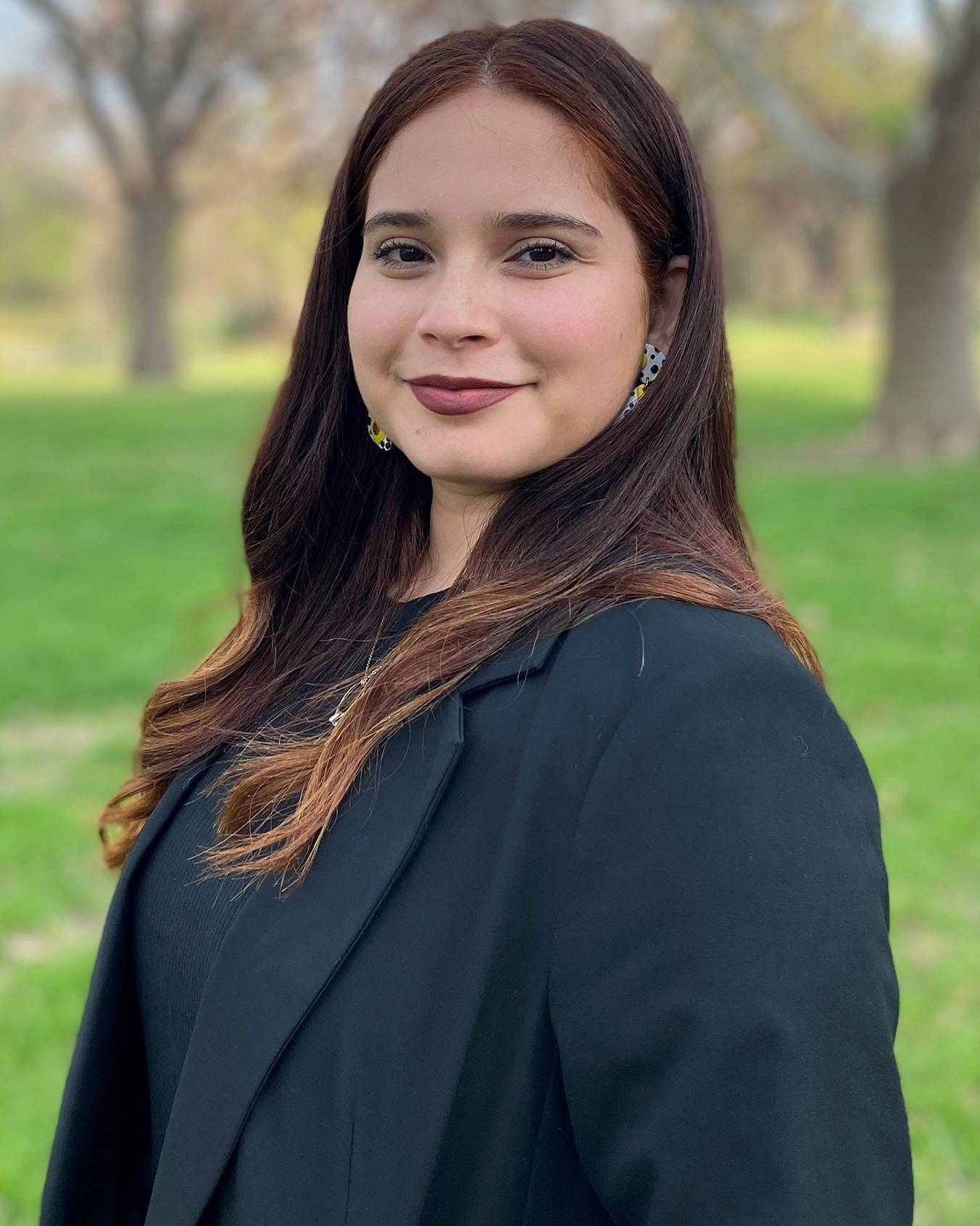Three Texas State University applied anthropology doctoral students — Theresa De Cree, Kelsey Fox, and Ivanna Robledo — have received Graduate Research Fellowships (GRF) from the National Institute of Justice (NIJ).
Of the 20 awards made nationwide under this program in 2024, TXST was the only institution to receive multiple awards, its three GRF recipients comprising 15% of the national awardee pool.
In addition, since each fellowship provides up to $180,000, with many awardees receiving lesser amounts, the fact that TXST’s 2024 GRF recipients received the maximum award — each the largest award ever received by a graduate student at TXST — means that the combined award amount of $540,000 is nearly 25% of the $2.3 million NIJ awarded in this year’s GRF competition.
The NIJ GRF provides three years of funding to support doctoral students whose dissertation research is relevant to criminal and/or juvenile justice. This program contributes to the United State Department of Justice's mission by increasing the pool of researchers engaged in providing scientific solutions to problems related to criminal justice policy and practice in the United States.
With these three awards, TXST graduate students have now received nine GRFs since 2019, which is especially impressive considering the program's two-year hiatus in 2021 and 2022.
Theresa De Cree

De Cree is a third-year doctoral student in applied anthropology. She earned a bachelor of arts in anthropology magna cum laude from the University of Pittsburgh and a master of science summa cum laude in forensic and biological anthropology from Mercyhurst University.
Her dissertation project, "Defining the Properties of Osseointegrated and Ingrowth Bone Around Orthopedic Medical Devices and Their Effect on Fracture Risk in Elderly Populations: A Forensic Anthropological Perspective," is relevant to criminal justice in the United States because of the prevalence of elder abuse and the frequency of fracture and arthroplasty in these individuals.
Specifically, her project addresses the need for more research on the differential rates of bone healing by age and by skeletal element outlined by NIJ’s Forensic Science Research and Development Technology Working Group (TWG).
Her dissertation committee chair is Daniel J. Wescott, Ph.D., professor in the Department of Anthropology and director of the Forensic Anthropology Center at TXST (FACTS). In his Statement of Support, Wescott wrote that De Cree's project will contribute to the field's understanding of bone remodeling, with applications in forensic anthropology and orthopedic medicine.
"For her dissertation, she is utilizing the micro-CT system to examine how bone integrates with medical orthopedic implants and how this information can inform us about how bone responds to biomechanical loading,” Wescott said. “Not only will this project significantly contribute to our knowledge of bone biology, but the information can also be applied to forensic anthropological casework.”
Kelsey Fox

Fox is a fourth-year doctoral student in applied anthropology. She earned a bachelor of science in biology with a minor in anthropology from the University of Louisiana at Lafayette and a master of arts in anthropology from Louisiana State University.
Her dissertation project, for which she previously applied to the NIJ GRF program in fiscal year 2023, is titled “Enhancing Equitable Forensic Identification: An Evaluation of Pelvic Morphology for Parity Detection and Age Estimation in Unidentified Skeletal Remains.”
In highlighting the increased risk of mortality that women face during pregnancy and childbirth due to interpersonal violence and maternal mortality, and in prioritizing data collection on Black women, Fox's project has demonstrable relevance to ensuring the fair and impartial administration of criminal justice in the United States.
Her dissertation committee is chaired by Michelle Hamilton, Ph.D., professor in the Department of Anthropology and a Diplomate of the American Board of Forensic Anthropology. In her Statement of Support, Hamilton wrote that Fox's project fills a gap in knowledge around pelvic changes associated with childbirth, which limits the ability of forensic anthropologists to accurately estimate the age and parity status (i.e., whether one has carried a pregnancy) of unidentified female remains.
"This research has merit and has potential to provide forensic anthropological practitioners and medicolegal authorities additional individualizing components to include in analyses of the unidentified skeletal remains of women of both parous and nulliparous status,” Hamilton said.
Ivanna Robledo

Robledo is also a fourth-year doctoral student in applied anthropology whose successful application is the result of a resubmission from the fiscal year 2023 competition. She earned her bachelor of arts in anthropology with an emphasis on biological anthropology from the University of California, Santa Barbara and her master of arts in anthropology with a concentration in biological anthropology from TXST.
Her dissertation, "A Multi-Method Genetic, Craniometric, and Isotopic Approach to Estimating Geographic Origin of Unidentified Latinx Remains," addresses a pressing problem in her field — identifying deceased migrants along the U.S.-Mexico border — with the potential for wide-ranging practical impacts.
Her dissertation committee chair is Nicholas Herrmann, Ph.D., professor in the Department of Anthropology and director of geophysical investigations for Operation Identification, a humanitarian project within FACTS whose mission is the identification and repatriation of unidentified human remains found in South Texas.
As Herrmann wrote in his Statement of Support, Robledo's project has “implications for the multitude of unidentified individuals across Latin America by taking a broader geographic perspective and incorporating innovative technologies.”
Her project has relevance for U.S. criminal justice in that it addresses the difficulty in identifying the remains of Latinx individuals by assessing their geographical origin. Her project responds to calls by the TWG and the Organization of Scientific Area Committees to evaluate novel forensic methods to improve their accuracy and reliability for geolocation and human remains identification.
Visit NIJ’s Graduate Research Fellowship Program page for more information about the award.
